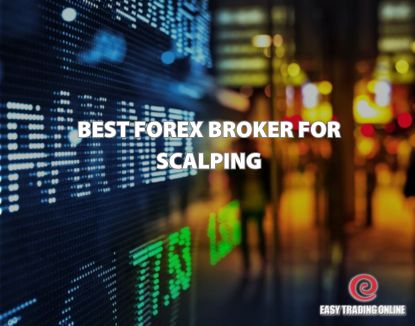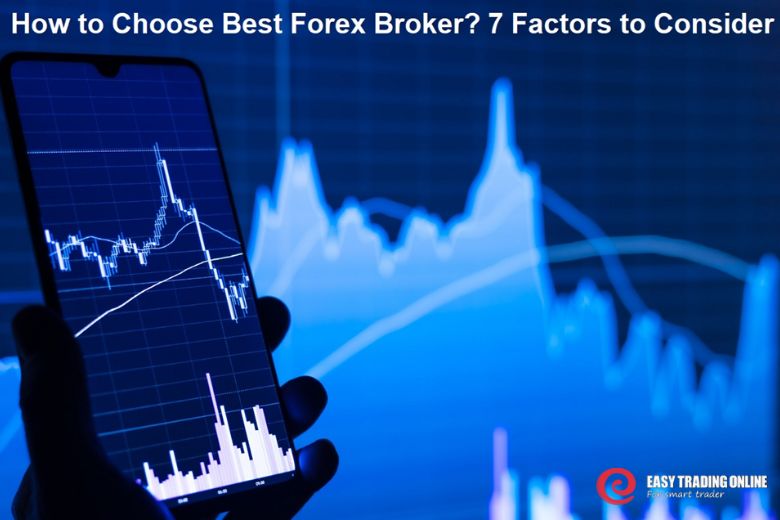

Choosing the right forex broker is crucial for scalpers looking to maximize profits and minimize risks. With countless options available, it can be overwhelming to find the best fit. This guide will delve into the key factors to consider when selecting a broker tailored for scalping, providing a comprehensive comparison of top-rated platforms, and offering insights into the world of high-frequency trading.
What is Scalping? Scalping is a high-risk, high-reward trading strategy in the forex market. It involves rapidly opening and closing multiple small positions to capitalize on minuscule price fluctuations. Scalpers aim to profit from small price movements, often within seconds or minutes, rather than holding positions for extended periods.
Importance of Choosing the Right Broker: Selecting the right forex broker is paramount for successful scalping. The broker plays a crucial role in facilitating trades and directly impacts a scalper's profitability. Factors like low trading costs, fast execution speeds, and a stable trading environment are critical for capturing fleeting opportunities and maximizing profits.
Key Factors to Consider: Several key factors must be considered when evaluating a broker for scalping:
Low Spreads: Spreads represent the difference between the bid and ask prices of a currency pair. Tight spreads are essential for scalpers as they directly impact profitability on small price movements.
Fast Order Execution: Scalping relies on swift order execution to capitalize on fleeting market opportunities. Delays in order execution can lead to missed trades and potential losses.
High Liquidity: High liquidity ensures that orders can be filled quickly and efficiently, minimizing slippage and maximizing trade execution.
Scalping-Friendly Platform: Some brokers may have restrictions on scalping strategies. It's crucial to choose a broker with a platform that supports high-frequency trading and does not impose limitations on scalping activities.

Low Commissions and Tight Spreads:
Scalpers rely on small price movements for profits. High commissions and wide spreads significantly erode profitability by eating into potential gains.
Brokers with low commissions and tight spreads on popular currency pairs are highly advantageous for scalpers.
Fast Order Execution:
In the fast-paced world of scalping, every millisecond counts.
Brokers with advanced technology and low-latency servers can execute orders swiftly, ensuring that scalpers can capitalize on fleeting price movements.
Features like market order execution and sub-millisecond latency are crucial.
High Liquidity:
High liquidity ensures that there are always buyers and sellers available in the market.
High liquidity allows scalpers to enter and exit trades quickly and efficiently, minimizing slippage and maximizing trade execution.
Scalping-Friendly Platform:
Some brokers may have restrictions on scalping strategies, such as limitations on order frequency or account types.
It's essential to choose a broker with a platform that supports high-frequency trading and does not impose limitations that could hinder scalping activities.
Features like advanced charting tools, customizable order tickets, and real-time market data are also beneficial for scalping.
| Broker Name | Key Features | Pros | Cons |
|---|---|---|---|
| [Broker Name 1] | Low spreads, ECN execution, fast order execution, MetaTrader 4/5 | Excellent for experienced scalpers, wide range of assets | Higher minimum deposit |
| [Broker Name 2] | Tight spreads, low commissions, STP execution, cTrader | User-friendly platform, competitive pricing | Limited research tools |
| [Broker Name 3] | Fast order execution, low latency, high liquidity, proprietary platform | Excellent for high-frequency trading, strong technology | May not be suitable for all trading styles |
Detailed information for each broker:
Key Features: Highlight specific features relevant to scalping, such as spread types (raw spreads vs. marked-up spreads), execution methods (ECN, STP), available order types (market orders, limit orders), and platform features (charting tools, indicators).
Pros: List the key advantages of the broker for scalpers, such as low costs, fast execution, and a user-friendly platform.
Cons: Identify any potential drawbacks, such as higher fees for certain account types, limited research tools, or less robust customer support.
Links: Include links to detailed reviews, comparisons, and broker websites for further research.

Disclaimer:
The information provided is for general knowledge and informational purposes only.
It does not constitute financial advice, and you should conduct your own thorough research and due diligence before selecting a broker.
Scalping is a high-risk trading strategy, and you could lose money.
Remember to continue researching and comparing brokers based on your individual trading style, risk tolerance, and budget.
Consider Your Trading Style:
Aggressive Scalpers: These traders aim for frequent, small profits. They often require brokers with extremely low spreads, ultra-fast execution speeds, and platforms optimized for high-frequency trading.
Conservative Scalpers: More cautious scalpers may prioritize lower risk and focus on larger, less frequent trades. They might prefer brokers with slightly wider spreads but stronger risk management tools and comprehensive educational resources.
Evaluate Your Budget:
Account Minimums: Scalping often involves frequent trades, which can lead to higher trading costs. Ensure your budget aligns with the broker's minimum deposit requirements.
Trading Costs: Carefully evaluate trading costs, including spreads, commissions, and any other fees associated with trading.
Consider the impact of these costs on your potential profitability, especially given the small profit margins associated with scalping.
Research and Compare:
Thorough research is crucial before selecting a broker.
Compare multiple brokers based on their features, fees, trading platforms, and customer support.
Read broker reviews from reputable sources, utilize demo accounts to test the platform, and consider contacting customer support to assess their responsiveness and helpfulness.

High-Risk Strategy: Scalping is inherently risky.
Rapid price fluctuations can quickly erode profits and lead to significant losses.
The potential for large losses is significant, especially for inexperienced traders.
Emotional Control:
Scalping requires exceptional emotional discipline.
Greed and fear can easily influence trading decisions, leading to impulsive actions and costly mistakes.
Maintaining composure and sticking to a well-defined trading plan are crucial for long-term success.
Market Volatility:
Market volatility can both benefit and harm scalpers.
While increased volatility can create more trading opportunities, it also increases the risk of sudden and unpredictable price movements.
Scalpers must be able to adapt their strategies to changing market conditions.

In conclusion, selecting the best forex broker for scalping requires careful consideration of factors such as spreads, execution speed, liquidity, and platform features. By understanding your specific trading needs and conducting thorough research, you can find a broker that empowers you to capitalize on short-term market opportunities. Remember, risk management is paramount in scalping, so always trade with a well-defined strategy and consider consulting with a financial advisor.